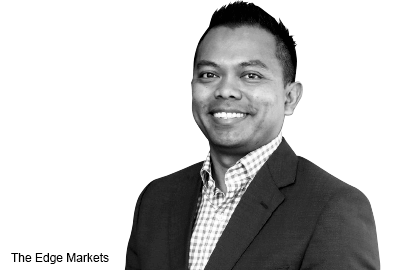

GREETINGS readers! It is already well into September. Oh my, time just flies, does it not? This time around, instead of writing on what is in the market for shariah investors, I want to write about what is not in the market. Fundamental to shariah investing, apart from complying with the shariah principles, is participation in the real economy. By that I mean, shariah-compliant funds should be mobilised for projects and ventures that are able to directly affect how we lead our lives.
Let me illustrate my point. At home, we enjoy clean water, electricity and proper sanitation. On the road, we enjoy multi-lane highways, bridges and tunnels. In the city, we are able to zoom around on the light rail transit network. If you think about it, many of these conveniences that we use on a daily basis, and some that we take for granted, require millions of dollars to develop and build.
How does investing in these infrastructure assets fit with shariah investors?
For shariah investors, any assets that they are looking at have to be screened for shariah compliance before any investment can be made. This means the activities related to the assets must not be prohibited by the shariah. Among the prohibited activities are those related to areas concerning liquor, gambling and conventional financial institutions. The beauty of infrastructure assets is that none of the prohibited activities above form a part of them.
Investing in infrastructure assets falls under the Islamic principle of maslahah. Under Islamic jurisprudence, the principle of maslahah or “public interest” is commonly used to determine the permissibility or prohibition of a certain action from the shariah standpoint. Specifically, investment in infrastructure assets will provide benefits that could be enjoyed by the public at large and therefore falls under the principle of maslahah.
Besides the above factors, shariah investors should consider investments in the infrastructure space because of the steady income that it can provide. Most of the infrastructure assets — in sectors such as power, toll roads and public transport — are regulated assets. This means that the owners of these assets secure long-term concession agreements from the government and their income over the concession period is guaranteed. This, in turn, would provide investors with guaranteed, steady income.
At the top of my wish list is to see the creation of a shariah unit trust fund that will invest in infrastructure assets. Such a fund would give us common folk a chance to invest in assets that matter to us and participate in nation building. There are many such infrastructure funds in the market, but sadly none is shariah-compliant and allows for retail investor participation.
On a recent trip to Australia, I met a few fund managers who have successfully built up funds to such a scale that each has at least a billion dollars under management. These funds have been in existence for more than 10 years and have returned on average between 12.5% and 15% yield per annum and pay out 5% to 7% annual cash distribution. Any shariah investor looking for a long-term investment with a moderate risk profile and annual cash income would jump to invest in these funds, but unfortunately, the shariah equivalent is not available in the market yet.
At the end of last year, the size of the global Islamic fund management industry was US$75.8 billion (RM326 billion), with 1,161 Islamic funds in existence. If we compare this with the total size of global Islamic finance assets, which stood at US$2.1 trillion, there is still a big gap. For the Islamic fund management industry to grow at a quicker pace, we need to have funds that are able to raise large amounts of money to make investments in big infrastructure assets. The proliferation of such funds will contribute to the rapid growth of the Islamic fund management industry.
* Baiza Bain is vice-president at Maybank Asset Management Group.
** This article first appeared in Money + Wealth, digitaledge Weekly, on September 21 - 27, 2015. Click here to subscribe from RM30 for the digitaledge Weekly and digitaledge Daily.